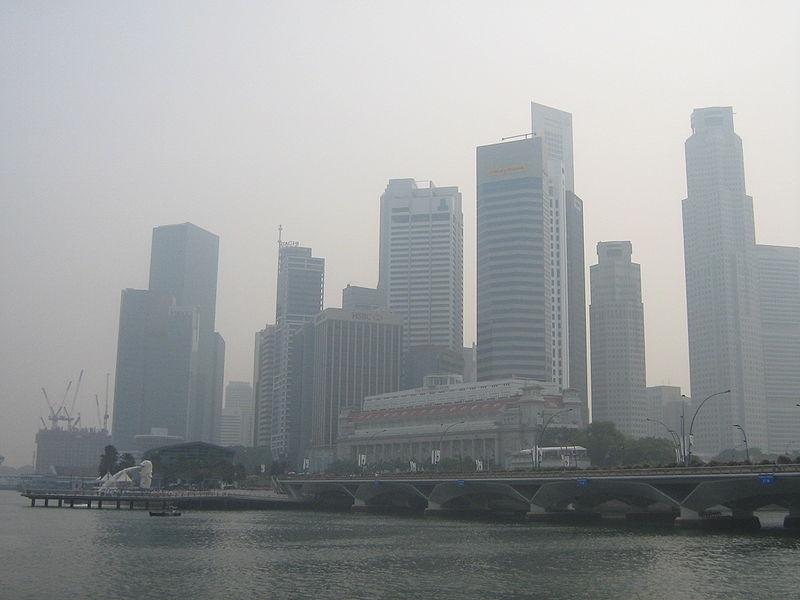
Here's what Asian ministers think would avoid a repeat of transboundary haze pollution
What about a sub-regional haze monitoring system?
Ministers of Environment from five ASEAN countries - Brunei, Indonesia, Malaysia, Singapore and Thailand – held the 15th Meeting of the Sub-Regional Ministerial Steering Committee (MSC) on Transboundary Haze Pollution this week to discuss measures to combat forest fires and haze in Southeast Asia. The meeting ended today with mixed results. The Ministers recommended establishing a “Sub-Regional Haze Monitoring System” for sharing detailed land-use and concession maps that will help to pinpoint companies and others responsible for illegal burning. This proposal, however, has a key shortcoming: the maps will be shared only between governments and therefore kept secret from the public.
Following is a statement by Dr. Nigel Sizer, Director of the Forests Initiative at the World Resources Institute:
“The Ministers’ recommendation to share company concession data between governments is an important step forward, but lack of commitment to public disclosure is a serious obstacle to progress. This agreement represents a missed opportunity, as publicly available concession data is essential for coordination between governments and local agencies, for contract compliance between commodity producers and their corporate customers, and for independent monitoring by researchers and civil society.
“The recent haze crisis demonstrated that better public information could improve coordination between national and local governments, and with companies. WRI’s analysis showed wide discrepancies between the concession boundaries used by national and local government agencies within Indonesia. Without a single public reference, law enforcement agencies and others government departments would be unable to adequately enforce fire prevention laws and respond to future crises.
“It is also strongly in the interest of companies to make concession maps public. Companies have reputational and operational risks with non-disclosure, as the media and government seek accountability for fires using outdated public concession data. Business can benefit from independent expert fire analysis, which can help them improve fire detection and rapid response. Public information would also allow companies committed to sourcing palm oil and other products responsibly to better coordinate responses with their suppliers and partners.
“It was the broad public concern and wide media coverage about the fires and haze that prompted Indonesia’s government to act decisively to put out the fires. Releasing concession data publicly would allow civil society, university researchers and other experts to support governments and businesses as they prevent and respond to fires. Without public concession data, none of these important goals can be fully achieved. Continued secrecy by Southeast Asian governments about the location of land holdings by oil palm, pulpwood and other companies will seriously impede efforts to prevent illegal fires and the associated suffocating smog in the future.”
























 Advertise
Advertise






